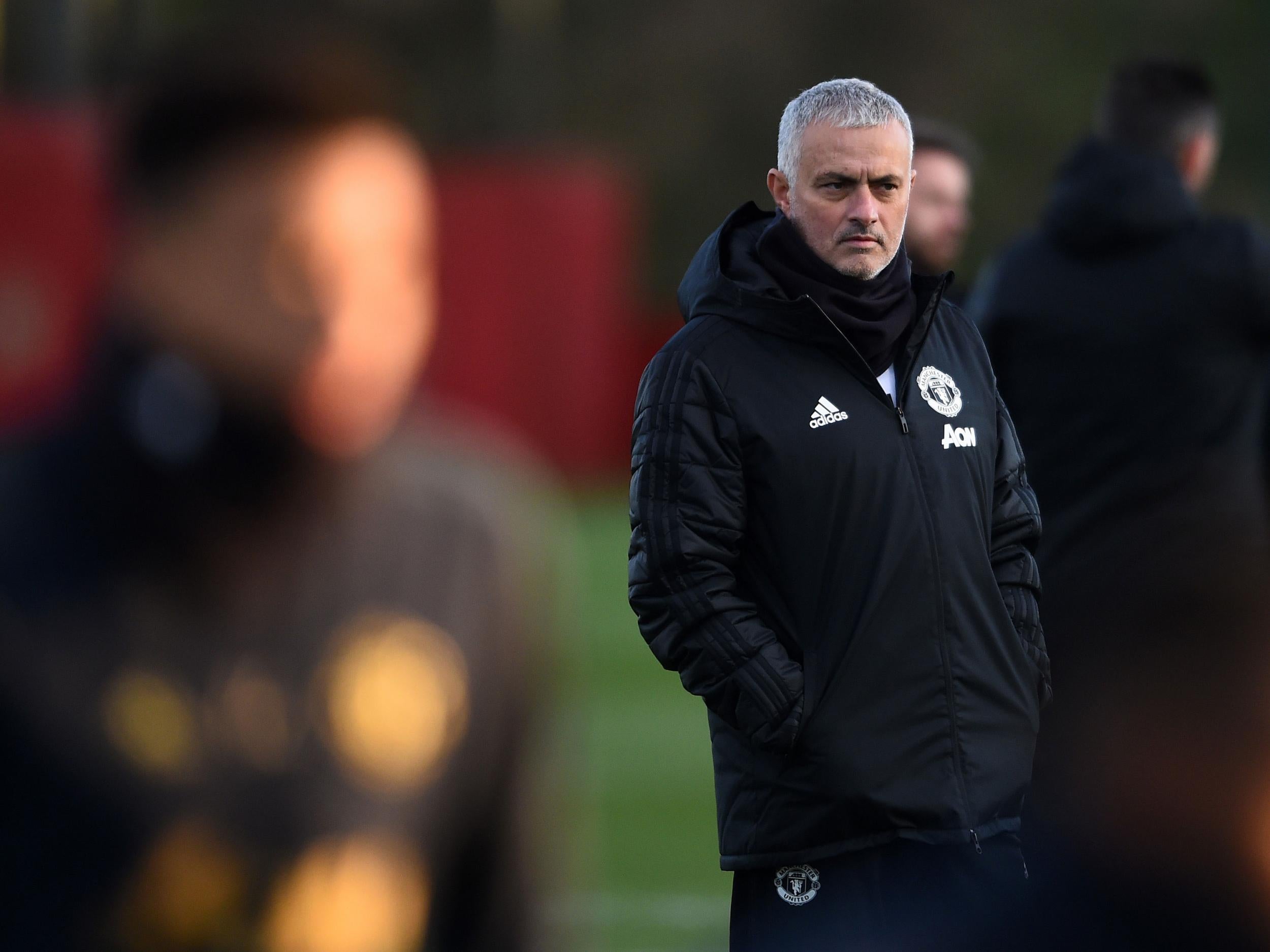Manchester United vs Young Boys: Jose Mourinho must adapt to modern player or he risks being left behind
Mourinho questioned the 'mentality' of the modern player last week, then accused his own of lacking 'heart'
Only one player emerged from Manchester United’s latest disappointment with any credit, according to Jose Mourinho.
Victor Lindelof, who played on with a thigh injury to ensure United would not be reduced to ten men, was “a brave lad but he probably punished himself,” Mourinho said. “I don’t know how long he will be out but he is a fantastic example.”
Unfortunately, Mourinho’s “fantastic example” will be sitting in the stands – if not at home – on Tuesday night, ruled out of contention to play against Young Boys by the injury he sustained and quite possibly aggravated in the protection of a point at home to Crystal Palace.
Lindelof, United’s most consistent player in recent weeks, is now likely to be sidelined for a month or more. Was it worth staying on? If staying on exacerbated the problem in any way then no, probably not.
But at least Lindelof’s self-sacrifice neatly illustrates the limitations of Mourinho questioning the “mentality”, “desire” and “heart” of his players, as he did on two separate occasions at the weekend.
The first such occasion was in a Spanish-language interview – six weeks old, yet only released by Univision on Friday – in which Mourinho questioned whether the present generation of players lack the “aggression” of their predecessors.
“We were more like men. We were more mature,” he told his interviewer, one Hristo Stoichkov. “We were more prepared for life. Let’s say it like that. We were less protected.”
Stoichkov, incidentally, grew up in poverty, became known as ‘The Dagger’ in his professional career, once received a lifetime ban for brawling mid-match and, in Johan Cruyff’s words, was “nurtured with an evil milk”. Mourinho, meanwhile, honed his football skills against a servant in the yard of his family’s estate.
Even so, the United manager clearly felt he and Stoichkov shared a mutual understanding of ‘toughness’ that Luke Shaw, Anthony Martial, Jesse Lingard and Marcus Rashford do not. “We’re talking about young lads of great potential but who are still missing a word that I can’t use but you like to use,” he said. The word, it would seem, was cohones.
Then, in the immediate aftermath of the draw with Palace, Mourinho accused some players of not only lacking their testicles but ‘heart’ too. The United manager even questioned whether dropping points at home would spoil the evening for some members of his squad, who “maybe will party”.
There is nothing necessarily wrong or old-fashioned about a manager demanding more effort or commitment from his players. Many will sympathise and share Mourinho’s distaste for the gaudy and ostentatious lifestyles of the modern player, as one look at Memphis Depay’s Twitter mentions shows.
Depay, the second player swept away by Mourinho’s new broom at Old Trafford two years ago, celebrated reaching 5 million followers on Instagram this weekend by filming a freestyle in front of the Eiffel Tower while smoking a cigar. The key lyric? “I stay humble”.
Yet while we all grow old, football does not age. Most of us remember with some mild horror the very first time we checked a goalscorer’s date of birth and found them to be younger than us. It is forever an 18-30s club that, when you are of Mourinho’s vintage, does not take your requests.
In order to keep pace over a long period of time, a manager does not necessarily have to start their own Instagram – as Mourinho did, by the way, only to delete it citing boredom. They simply need to understand that the players of today may respond to their methods differently compared to those of ten years ago, then tweak those methods according.
Manchester Utd vs Young Boys
Key information
Kick-off: 8.00pm
TV: BT Sport 2
From the oldest United player he managed – Kevin Moran, who pre-dates the Eurovision Song Contest – to his youngest – Nick Powell, still just spritely a 24-year-old – Sir Alex Ferguson understood this, and was perhaps the finest practitioner of the tricky squad transition that English football has seen.
The Scot moved from Clayton Blackmore to Cristiano Ronaldo, managing personalities as varied as Anderson and Arthur Albiston, and remained the one constant in a sea of change until, eventually, he could sign schoolboys whose parents had only ever known him as the manager of Manchester United.
Mourinho, closing in on his 20th year in management, will soon work with players born after he embarked on his coaching career. Yet he seems to treat this emerging workforce with an unhealthy suspicion, viewing their generational quirks as character flaws, while reminiscing about a time when a mildly-concussed Lindelof would be allowed to block a Palace shot with an already-broken shinbone.

The question of whether the United manager is ‘yesterday’s man’ has been asked for so long now that the answer is surely ‘no’. He is still here, still therefore relevant. But Mourinho may find he loses such relevance quickly unless he attempts to better understand and sympathise with the players of today and tomorrow.
Join our commenting forum
Join thought-provoking conversations, follow other Independent readers and see their replies
Comments